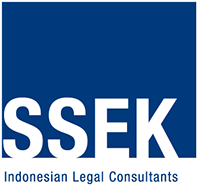 Anti-corruption compliance is rightly a focus of companies operating in Indonesia. One of the more interesting questions for such companies, particularly foreign investment companies, is whether the company and/or individual company Directors can be prosecuted for corruption as a result of the actions of employees. Based on a plain-English reading of Law No. 31 Year 1999 regarding Eradication of the Criminal Act of Corruption, as amended by Law No. 20 Year 2001 (the Corruption Law), a company and/or individual Directors may be exposed to potential criminal charges for corruption. Potential corporate liability: Articles 2, 3 and 5 through 16 of the Corruption Law delineate the perpetrator of a criminal act of corruption with the phrase ‘setiap orang’ (any person). ‘Orang’ (person) itself is defined under Article 1 point 3 of the Corruption Law to include a company. Pursuant to Article 1, point 1 of the Corruption Law, a company is a group of persons and/or assets organised either as a legal entity or as a non-legal entity. Therefore, any person, which includes a company, committing a criminal act of corruption under one of the foregoing provisions of the Corruption Law may be punished with criminal sanctions. The liability of a company for criminal acts under the Corruption Law is specifically enshrined in Article 20 of the Corruption Law, which, in the relevant part, reads as follows: Despite the clear language of the Corruption Law, there are very few cases in which the Indonesian courts have subjected a company to criminal liability for corruption. We have found only two court decisions in the area of corruption law that have applied the concept of corporate criminal liability. The cases involved PT Giri Jaladhi Wana, decided by the Banjarmasin District Court in 2011, and PT Indosat Mega Media (IM2), decided by the Corruption Court in 2013. It is worth noting that in both cases the corrupt acts were committed by Directors and the companies were held to have benefited directly from the corruption. Thus, while the Corruption Law permits the bringing of charges against a company, the fact remains that law enforcement agencies have been reluctant to invoke its provisions against companies as opposed to individuals. Article 20 of the Corruption Law indicates that an officer, including a Director, may be charged where a criminal act of corruption is committed by or in the name of a company. However, we read this provision as requiring the Director to have adopted policies or given directions giving rise to the act of corruption. We could not find instances in which an individual was held criminally liable under the Corruption Law by reason of his or her status or position alone, for example, by reason of his or her serving as a Director. Indonesian law enforcers and courts appear to require, at a minimum, that a person direct or cause the corrupt act or, perhaps, have knowledge of the corrupt act. In the several cases in which individuals in positions of responsibility were held criminally liable under the Corruption Law, the courts scrutinised the defendant’s individual involvement in the corruption to determine his or her guilt. In all of the cases that we examined, the guilty defendants were in one way or another personally/directly involved in the corruption. |
SSEK
14th Floor Mayapada Tower, Jl. Jend. Sudirman Kav.28
Jakarta 12920, Indonesia
Tel: (62) 21 304 16700 / 521 2038
Fax: (62) 21 521 2039
Email: michaelcarl@ssek.com
nicomooduto@ssek.com
Website: www.ssek.com




































 SSEK Legal Consultants
SSEK Legal Consultants Rusmaini Lenggogeni
Rusmaini Lenggogeni Denny Rahmansyah
Denny Rahmansyah







